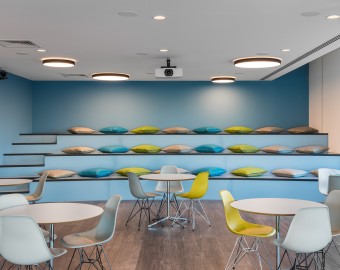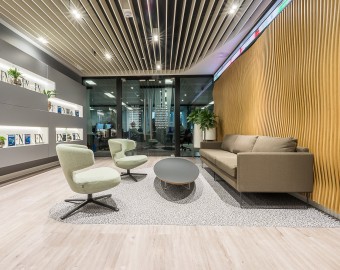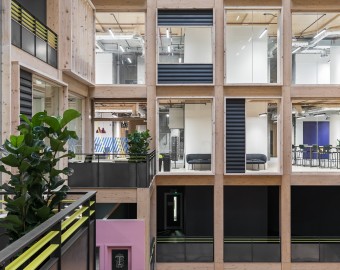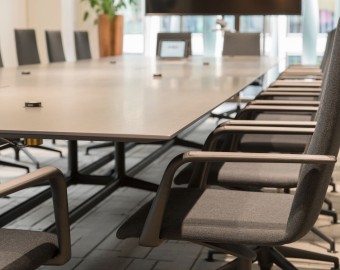How is the hybrid model redefining our working lives?
There seems little doubt that the key impact of Covid-19 in the world of work appears to be the shift among many firms towards a hybrid working model. The consequences of this new outlook are wide-ranging, and in many cases obvious, whether it’s the change in the need for physical office space, the desire to adapt the space that is required or the adoption of new policies around collaboration and meetings.
Workers are feeling more empowered
One other consequence, however, is that workers may feel more trusted and empowered by being allowed to work remotely. This positive outcome was revealed in a recent survey carried out by Kadence which indicated that of the 2,000 respondents nearly two thirds of workers in the UK and USA feel more trusted by their employer that they can do their job role effectively and efficiently at home. In addition, half of those surveyed confirmed that they felt more motivated to do their job to a higher standard, while 48% felt more inspired to go above and beyond in their new setup. The key to these outcomes would appear to be that workers relish having more influence over how – and when – they work. Micromanagement is less possible under a hybrid model, and the majority of respondents (64%) felt that this was allowing them greater autonomy and freedom, especially in terms of how they structured their working day.
Meeting virtually or face-to-face
Furthermore, the adoption of new technology – especially in relation to meetings – seems to have had a positive effect, with three quarters of respondents reporting an increase in their use of online communication tools both for work and leisure. Interestingly, less than one third stated that the use of such tools has diminished their appetite to socialise and has negatively impacted their ability to communicate outside work. This concern was reflected in the 51% who preferred the option of meeting face-to-face in the office once a week and the 40% who identified the ease with which desks and meetings can be booked as a priority.
An extension of relaxing the requirement for workers to be in the office permanently is the suggestion that a four-day week – where staff work for four days but are paid for five – may lead to higher levels of motivation and productivity. Rather than allowing employees to burn out by working longer hours at home, the concept of the four-day week – championed by 4 Day Week Global, a non-profit organisation – suggests that cutting one working day each week can actually help make people more productive, preserve their health, create stronger families and communities, address gender inequalities and improve businesses’ green credentials.
When it comes to technology, hybrid working requires investment, not least because a worker dividing their time between home and the office may need their setup mirrored in order to work seamlessly. It was predicted that expenditure on IT alone would rise by 6.2% in 2021, and that software spend would increase by nearly 9%. Whereas previously IT spend was channelled into the physical requirements of the office, this has shifted to a combination of office-based and home-working software and hardware. And while, in the past, a business may have had various solutions for their data storage and access, for example, the pandemic has crystallised the need for this to be consolidated and made accessible to anyone working anywhere.
Data can also provide insights into how the office space is actually being used, and into how it will be used in the future. While historically the aim might have been to maximise the available space by filling it with as many desks as possible, Covid-19 has required a rethink. Spaced desks, collaborative areas and quiet rooms are now the standard, and flexibility is key. In reality, under a hybrid model no-one will have ‘their’ desk anymore – all desks will need to be set up so that anyone can use them.

Initially, it was felt that the move to hybrid working would signal the death of creativity, but online meeting tools have enabled businesses to meet and share ideas with ease. Project management software has come into its own, while virtual whiteboards can enable participants to brainstorm wherever they’re located. One important area for investment, of course, is in internet connectivity that is fit for purpose. Without that, virtual meetings simply can’t take place.
A summary from Carol Chinn
For Carol Chinn, design partner at The Workspace Consultants, adopting a hybrid model may well be the best step for an organisation, but it’s only likely to work if it’s properly planned. ‘The reaction during the pandemic was – out of necessity – to rush into setting up employees to work from home, but an effective hybrid model needs to be carefully planned to ensure it suits your specific business,’ comments Carol. ‘That’s why when a client approaches us to help rethink how they are using their office space, the first thing we recommend is a detailed brief taking phase, followed by high-level space planning. This enables us to analyse the use of the existing space and discuss how that usage may change in the future.
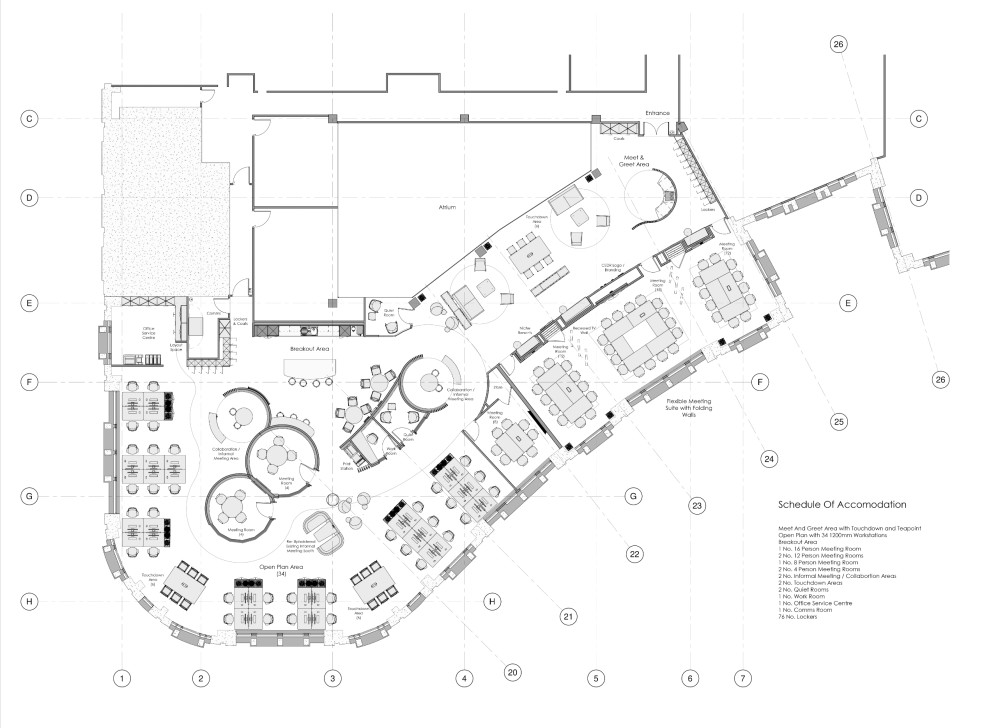
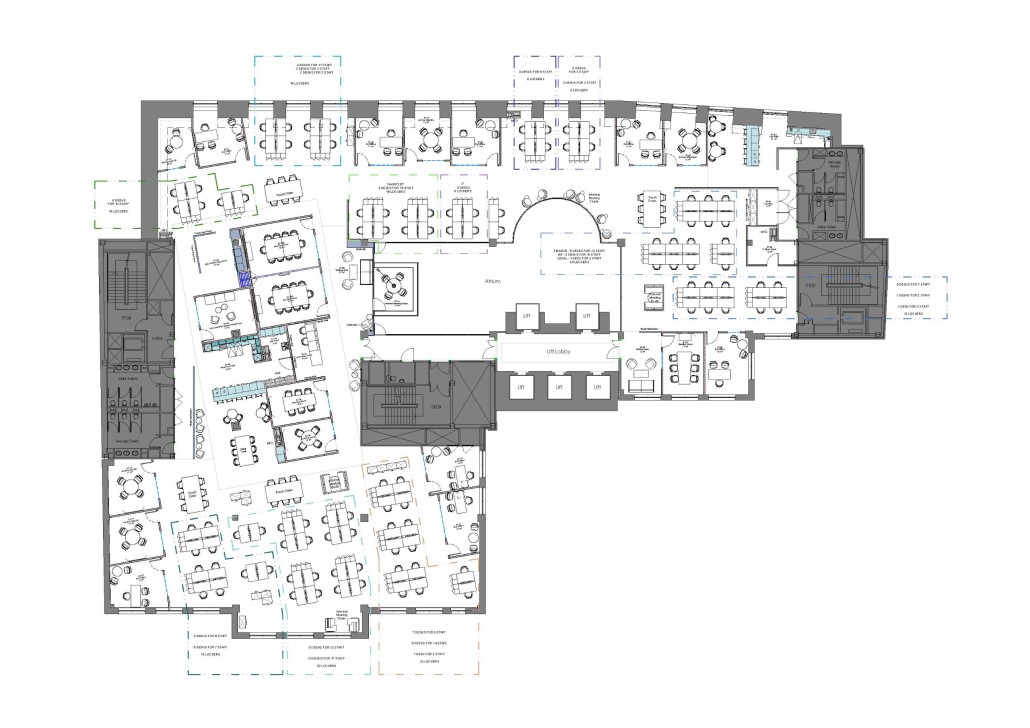
‘When you’ve been using an office every day, it can be very difficult to step back and envisage a different planning model, and that’s where we can offer advice. Once we understand how your space needs to be used, how often each employee will use it and how the architecture and technology can support them, we can confidently create an environment that will support your business requirements.’
Get in touch
The Workspace Consultants specialise in office design and project management in Cambridge and London, so if you’re considering adopting a hybrid model, why not contact us today for an initial discussion?

